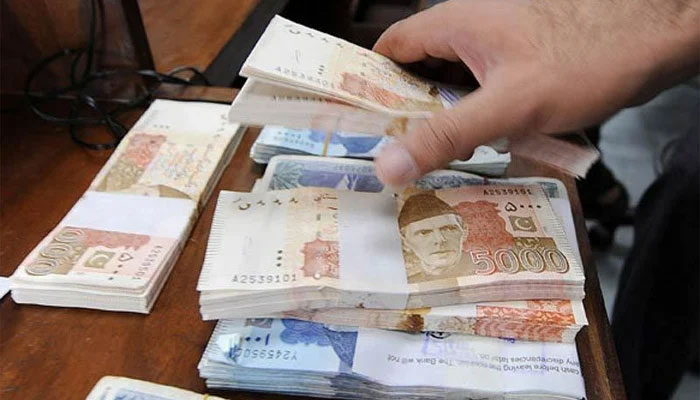Attacking the NFC – again
There is only one way forward: cut non-development expenditures, including non-combat defence expenditure
The attacks on the 7th National Finance Commission Award continue relentlessly, even though all the technical arguments forwarded by apologists of centralization for reversing it have been soundly rebutted. Desperation, it appears, has now induced the centralist lobby to give vent to figments of imagination.
The new line of argument being presented at different fora is somewhat as follows: the provinces had been told clearly that the seventh NFC Award was only sustainable if tax revenue worth an additional three per cent of GDP was raised in the next three years; the unworkability of the award without the addition tax revenue had been clearly discussed with the provincial finance ministers; it was hoped that an integrated goods and services value-added tax would be brought about; the expectation was that the NFC Award would lead to fiscal decentralization, with provinces enacting local governments and setting up provincial finance commission to finance them; and so on.
This author was a member of the 7th NFC that produced the Consensus Award, signed in Gwadar on December 30, 2009. The process of arriving at the consensus decision was intensive and comprised 16 meetings over five months. All nine members, led by the federal finance minister and including the federal finance secretary and five provincial finance ministers, were actively engaged in the deliberations. One of the provincial finance ministers was also the chief minister of a province. The fact is that none of the four claims alluded to in the previous paragraph are true.
The then federal finance minister did express his intention to raise the tax-to-GDP ratio to 15 per cent which was also recorded in the Gwadar Declaration. However, at no point during the five-month-long deliberations was there any mention or even insinuation that the Award would be ‘unsustainable or unworkable’ sans additional tax revenue nor was there any ‘expression of hope’ that the goods and services component of sales tax would be integrated – rather, they had just been separated. Moreover, there was never any discussion during the deliberations to induce the expectation that local governments would be instituted along with provincial finance commissions.
And then there is the usual refrain: provincial tax collection is under-whelming; provinces collect less than one per cent of GDP in taxes or less than eight per cent of total taxes collected, nationally; but finance only 16 per cent of their expenditures with their own revenue. The fact is that tax collection is dependent on tax bases; the larger and more robust the tax base, the greater the potential for tax collection. And the fact again is that – except for sales tax on services, now – all the larger and robust tax bases are with the federal government. Reverse the tax bases and it is the federal tax collection that will mirror today’s provincial tax collections.
The apologists for centralization had earlier come up with the proposal that seven per cent of the Divisible Pool – from which the federal government and all four provincial governments draw their shares, as determined by the NFC – be allocated to the federal government and the balance be distributed among the federal government and the four provinces. Now, a new line has emerged: the FBR must be allocated two per cent of total revenue for their tax collection effort. Before the distribution among the federal government and the provinces. This is an idea that is as irrational as the earlier one.
The persistent obduracy of the champions of centralization in attempting to poach provincial resource bases to fund federal fiscal profligacy is creating dangerous fissures. Whispers are beginning to float that all the taxes the federal government collects are from tax bases that are located territorially in the provinces. Notions are beginning to float that perhaps the tax regime can be turned confederal, with the provinces collecting all the taxes and allocating a portion to the federal government for its expenditures. Sindh has already placed the proposal formally in this regard.
The snide comments on provincial tax collection efforts are also now stale. The post-7th NFC collections of sales tax on services of all four provinces have far surpassed the earlier FBR record, which only lends weight to the confederalization idea.
It is time advocates of re-centralization gave up the exertion to pick provincial pockets or the near-empty pockets of the poor or extend their kashkols all around or hawk national assets to feed the insatiable federal expenditure needs.
There is only one way forward: cut non-development expenditures, including non-combat defence expenditure, to reduce the fiscal deficit and stabilize the economy. Let the guardians of central supremacy have the courage to take up this mantle.
The writer represented Sindh on the 7th NFC and now represents
Balochistan. He tweets/posts @kaiserbengali
-
 King Hospitalized In Spain, Royal Family Confirms
King Hospitalized In Spain, Royal Family Confirms -
 Japan Launches AI Robot Monk To Offer Spiritual Guidance
Japan Launches AI Robot Monk To Offer Spiritual Guidance -
 Japan Plans Missile Deployment Near Taiwan By 2031 Amid Growing Regional Tensions
Japan Plans Missile Deployment Near Taiwan By 2031 Amid Growing Regional Tensions -
 Meghan Markle, Prince Harry Spark Reactions With Latest Announcement
Meghan Markle, Prince Harry Spark Reactions With Latest Announcement -
 Kate Hudson Reflects On Handling Award Season With No Expectations
Kate Hudson Reflects On Handling Award Season With No Expectations -
 6 Celebrities Who Have Been Vocal About Anxiety And 'panic Attacks'
6 Celebrities Who Have Been Vocal About Anxiety And 'panic Attacks' -
 Is This The Future Of Train Travel? Robot Dogs, Drones Are Redefining Public Transit Safety Through China’s New Metro Station Deployment
Is This The Future Of Train Travel? Robot Dogs, Drones Are Redefining Public Transit Safety Through China’s New Metro Station Deployment -
 Sarah Ferguson Seeks Hollywood Backing As Epstein Files Resurface
Sarah Ferguson Seeks Hollywood Backing As Epstein Files Resurface -
 China’s AI Milestone: ByteDance’s Doubao Chatbot Hits 100M Users During Lunar New Year
China’s AI Milestone: ByteDance’s Doubao Chatbot Hits 100M Users During Lunar New Year -
 Think You Know ChatGPT? Here Are 5 AI Levels You’ve Never Seen
Think You Know ChatGPT? Here Are 5 AI Levels You’ve Never Seen -
 Bitcoin Bounces From $62,000 As On-chain Metrics Signal Prolonged Weakness: Here Is Everything To Know
Bitcoin Bounces From $62,000 As On-chain Metrics Signal Prolonged Weakness: Here Is Everything To Know -
 Elon Musk Teases Official Grok CLI For Developers As AI Rivalry With Anthropic Heats Up
Elon Musk Teases Official Grok CLI For Developers As AI Rivalry With Anthropic Heats Up -
 Jennifer Aniston Ready To Walk Down The Aisle Again?
Jennifer Aniston Ready To Walk Down The Aisle Again? -
 Sarah Ferguson’s Plan Now That Andrew Is Thrown Into The Fire: ‘She’s Not Certain She’ll Come Out The Other Side’
Sarah Ferguson’s Plan Now That Andrew Is Thrown Into The Fire: ‘She’s Not Certain She’ll Come Out The Other Side’ -
 ‘The AI Doc’: What AI Leaders Told Daniel Roher Will Keep You Up At Night
‘The AI Doc’: What AI Leaders Told Daniel Roher Will Keep You Up At Night -
 Sarah Ferguson In Hiding As Arrest Fears Grow After Andrew Was Taken Into Custody
Sarah Ferguson In Hiding As Arrest Fears Grow After Andrew Was Taken Into Custody




